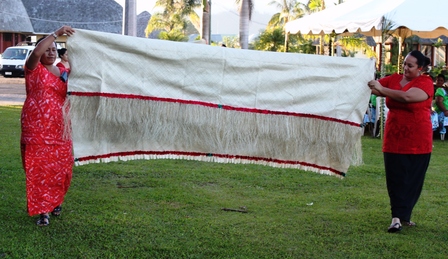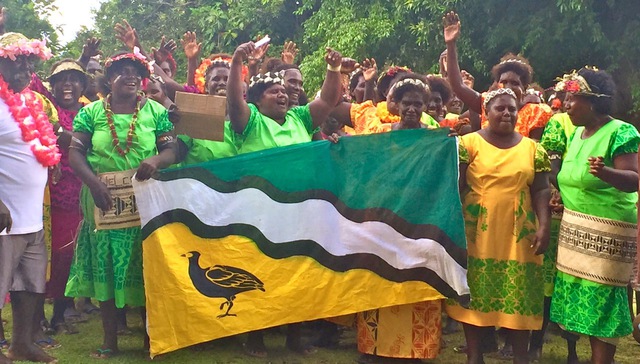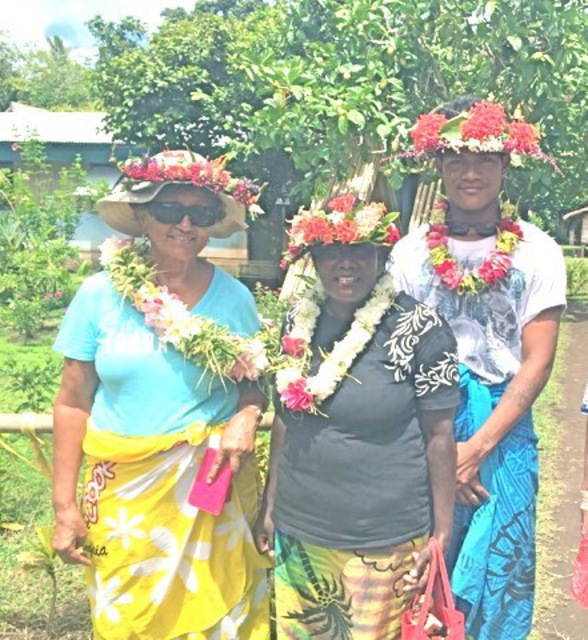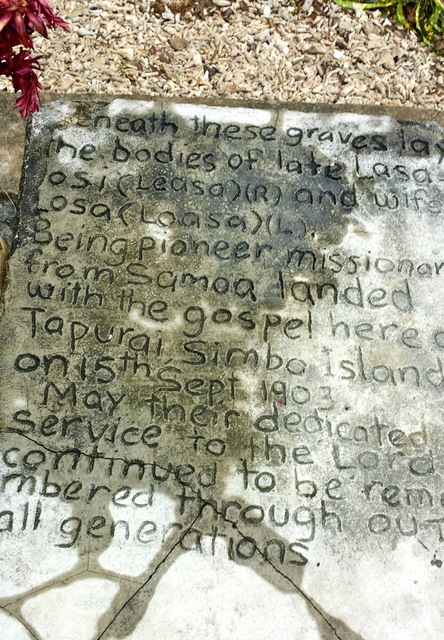Making it happen in the Pacific

By Adimaimalaga Tafunai
Executive Director
Women in Business Development
The theme this year for International Women’s Day is Make It Happen and we have certainly seen many great and wonderful things happen for Samoan and Pacific women. Sometimes to make things happen in one area, you have to start from a totally different area. In our programmes, we try to empower the whole family and whereas we can see the increase in skills, resources and income, it is the things that we don’t see anymore that also make women’s lives better.
Throughout the years, we have seen how the lack of cash can contribute to an increase of violence towards women and children. This is not a phenomenon peculiar to the Pacific, but because of the scarcity of paid employment it may be more prevalent.

In the case of Samoa, when we started our finemat programme in the 1990s we saw flare-ups of domestic violence as a result of the women becoming the main income earner and displacing her husband as the provider. We would visit families and find women had been beaten because of the time they spent on their weaving instead of household activities. There were times our staff stayed overnight at these women’s homes to ensure peace and physical safety. We learned to re-frame our programme to include the husband and create a role that was also valued. He was recognized at the planter and harvester of the weaving plants, he also took on more childcare and domestic duties to allow his wife time to weave. For the family, the programme was re-framed as a family enterprise. We now see men embracing this role and supporting their wives with pride.

Women in Business Development also works around the Pacific region, sharing knowledge and our products and markets. In the project I am about to discuss, I want to give credit to the Pacific Leadership Programme, which is funded by the Australian government. The programme’s flexibility meant we could respond to the changing needs of the community and its new and emerging leaders.
In the Solomon Island of Simbo, in the Western Province, we were asked to intervene in a situation that seemed beyond our abilities. On this island women left their homes for up to three weeks to sell their produce on a neighbouring island. During which, young girls could be sexually assaulted by male family members. There are families on the island where very young girls have become pregnant to a father, uncle or grandfather. The woman leader we mentored, Esther Tali Suti, had been praying for many years for a solution to their problems and with the help of her husband, Stephen Suti Agalo, and an Australian volunteer found her to way to Samoa.
Our intervention involved two major aspects: the setting up of income-generating activities that would keep the women on the island, and peer-to-peer discussions with the men and women.
At the start when Esther asked us for help we did not feel equipped to deal with her original issues, so we began with looking at the way women earned their cash. We set up a number of different activities including virgin coconut oil production, gave them financial literacy training, began the process of organic certification – that we hope to complete in 2016 – and also taught elei or material stencilling. The elei was so popular because it was the first time many people had seen their traditional patterns on material. Now the women are taking orders for uniforms from the nearby island Gizo, the capital of the Western Province.

To get the men of the island to reflect on their poor behaviour, it was our mature male staff who appealed to them to nurture their families and care for them appropriately. This was not a planned activity but a response to what they saw. It was a sincere, emotional appeal that resonated with the men, who have seized the opportunity to change their community for the better. We have seen a marked change in the men of Simbo. They have become more open about taking over the roles that were considered a woman’s work and more supportive of their wives. Cleaning was only ever done by women but at our last visit to Simbo in February, we attended the opening of three craft houses, and we saw one the chief’s brothers sweep the leaves and lolly wrappers after one of the welcoming celebrations.
The island environment has also changed. When we first went there, the primary access paths between the four main villages were barely-there tracks with head-high foliage and a common place for attacks. However, those trails have now become clear, open roads that even vehicles could now travel down. The overgrown bush has tamed and flower gardens planted by the roadside. One man, who is paralysed and confined to a wheelchair, was able for the first time to drive his wheelchair from one village to another where we were launching the first chiefly meetinghouse in over 60 years.
The whole island has become more open, houses are more visible and this is partly because the villagers have set up a small tourism project that includes the small huts to showcase their handicrafts. In every village that we went to in February, people told us how Simbo was coming back into the light, that Simbo had been a place of dark things for some time, but that finally things were coming right in the community. Samoans have been there before in Simbo. Back in 1903, a Methodist missionary couple Lasa Losi Loasa and Losa Loasa (according to the gravestones) spent 27 years on the island.
Before we left Samoa in February, we went to see Pastor Nu’uausala and Malu Siutaia to pray for our journey and our work. When we do our work in Simbo we are very conscious to keep God foremost in our minds and be guided by our faith. Really this reflects on one of our key values that God will guide us and meet our efforts with his blessing.
Posted: Sat 07 Mar 2015

